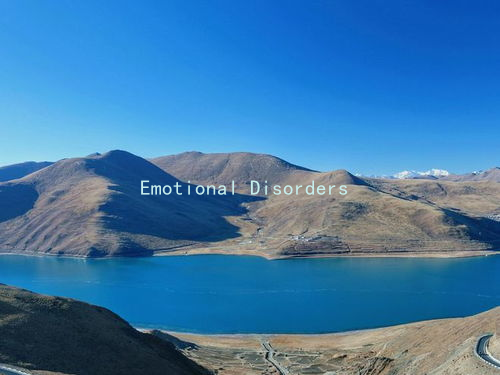Emotional Disorders and Relationships: Key Insights for Couples
Emotional Disorders and Relationships: Key Insights for Couples
Navigating the complexities of relationships can be challenging, especially when emotional disorders are involved. Understanding how these disorders affect both partners is crucial for fostering a supportive and healthy relationship. This article provides key insights for couples dealing with emotional disorders, offering tools to enhance communication and strengthen their bond.
Understanding Emotional Disorders
Emotional disorders, including anxiety, depression, and bipolar disorder, can significantly impact interpersonal relationships. These conditions might manifest as mood swings, withdrawal, irritability, or difficulty in expressing feelings. For couples, this can lead to misunderstandings, conflicts, and feelings of isolation. It’s important to recognize these symptoms not as personal failings but as challenges that require compassion and patience.
Prioritize Open Communication
One of the most effective ways to support one another is through open and honest communication. Couples should create a safe space where both partners can express their feelings without fear of judgment. Discussing emotional disorders openly helps demystify the experience and can alleviate feelings of alienation. Here are some tips for effective communication:
1. Active Listening: Pay close attention to your partner’s words, and make an effort to understand their feelings. Reflect back what you hear to confirm understanding.
2. Use “I” Statements: Frame conversations in a way that expresses personal feelings rather than blaming the partner. For example, say, “I feel worried when you withdraw,” instead of “You always shut me out.”
3. Avoid Assumptions: Don’t jump to conclusions about what your partner is feeling. Instead, ask questions and encourage them to share their emotions.
Establish Boundaries
Boundaries are essential in any relationship, especially when dealing with emotional disorders. They help both partners understand each other’s limits and needs, reducing potential conflicts. Discuss what is acceptable and what isn’t in terms of behavior during difficult emotional episodes. This might include timeouts to cool down after an argument or agreeing on how to approach sensitive topics.

Seek Professional Help Together
Consider seeking professional help as a couple. Relationship counseling can provide a neutral space for both partners to address their concerns. Therapists can offer valuable insights and strategies to improve communication, manage emotional disorders, and reduce tension in the relationship. It’s essential for both partners to be open to this option, as it shows commitment to the relationship and a willingness to work on individual and shared challenges.
Educate Yourselves
Education is empowering. Understanding the specifics of the emotional disorders affecting your partner can help you respond more effectively to their needs. Consider reading books or attending workshops that focus on emotional disorders. This knowledge not only helps you understand your partner better but also fosters empathy and compassion.
Foster Positivity and Patience
Building a relationship that can withstand the challenges of emotional disorders requires patience and a positive outlook. Celebrate small wins together, and reinforce each other’s strengths. Fostering an environment where both partners feel valued can significantly enhance emotional resilience. Remember that navigating these challenges is a journey, and progress may be slow but meaningful.
Encourage Self-Care
Encouraging each other to practice self-care can bolster well-being for both partners. Engage in activities that foster relaxation and emotional health, such as exercise, meditation, or creative pursuits. Prioritizing individual well-being benefits the relationship overall, allowing both partners to bring their best selves to the partnership.
Conclusion
Emotional disorders can pose significant challenges in relationships, but with understanding, communication, and support, couples can navigate these obstacles together. By prioritizing open communication, establishing boundaries, seeking professional help, and fostering positivity, couples can create a nurturing environment that promotes emotional well-being. In doing so, they not only strengthen their bond but also foster individual growth, making their relationship more resilient to life’s challenges.





